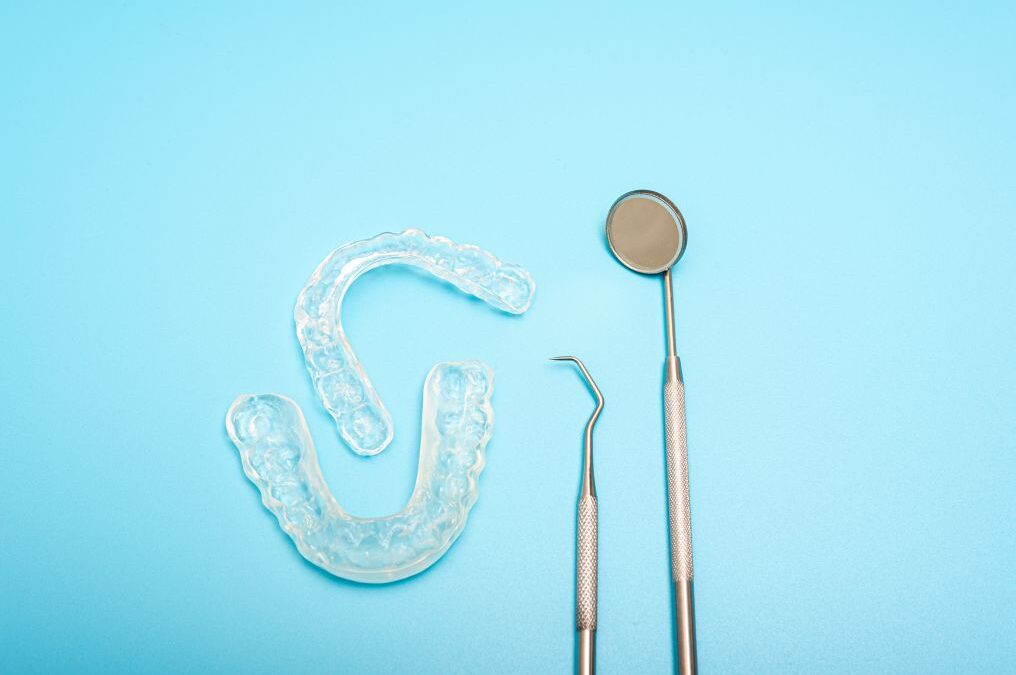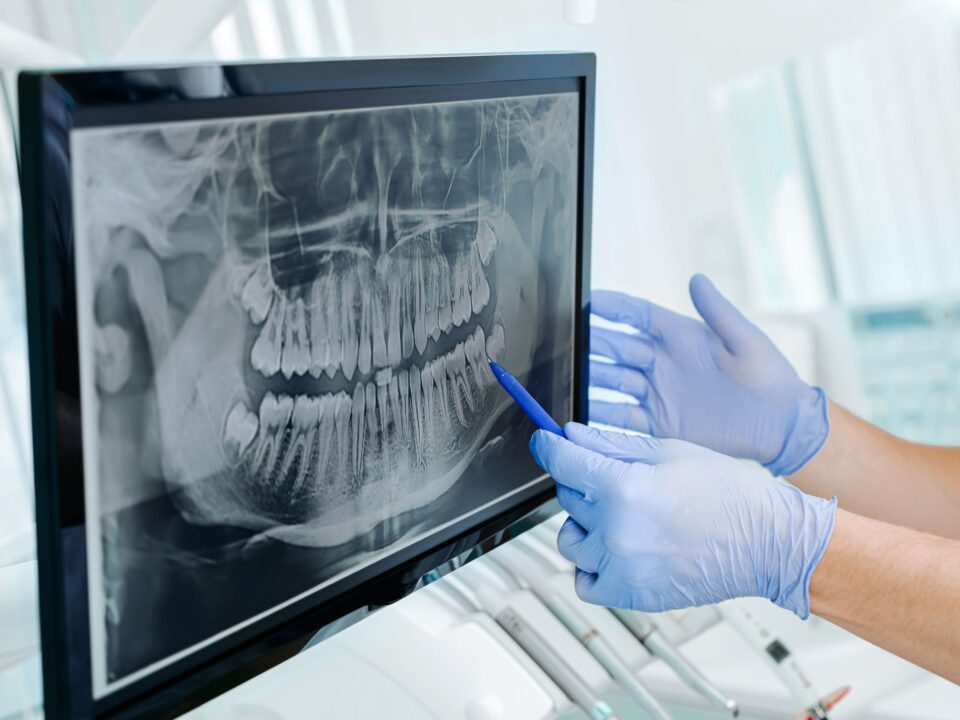Effective strategies for managing bruxism symptoms
Teeth grinding – clinically known as bruxism – is a surprisingly common yet often overlooked condition. Many people are unaware they even do it, especially when it happens during sleep. Unfortunately, this unconscious habit can have serious consequences for your teeth, jaw, and overall health.
Understanding the causes, symptoms, and available treatment options for bruxism is essential to prevent long-term damage. This comprehensive guide explores the dangers of teeth grinding and highlights effective strategies to protect your smile and well-being.
Understanding Bruxism and Its Causes
Bruxism is defined as the involuntary clenching, grinding, or gnashing of teeth, often occurring during sleep (sleep bruxism) but sometimes happening during waking hours (awake bruxism).
- Sleep bruxism typically occurs during lighter stages of sleep or during periods of arousal throughout the night.
- Awake bruxism is often linked to stress or concentration, such as clenching the jaw while focusing or reacting to tension.
Because many cases of bruxism happen unconsciously, it can go unnoticed for months or even years until visible or painful symptoms arise.
Common Causes of Bruxism
The causes of bruxism are multifactorial, meaning several physical, emotional, and behavioral factors may interact to trigger the condition.
- Stress and Anxiety: One of the leading causes of bruxism is psychological stress. When the body is under strain, tension can manifest physically – and clenching or grinding the teeth is one of the ways the body releases that tension. People who are prone to anxiety, anger, frustration, or competitive drive are more likely to experience bruxism, particularly at night.
- Lifestyle Factors: Certain lifestyle habits can exacerbate or trigger teeth grinding, such as caffeine and alcohol, smoking, and recreational drug use.
- Sleep Disorders: Bruxism frequently coexists with sleep disorders such as obstructive sleep apnea (OSA). When breathing stops during sleep, the body instinctively tenses to reopen the airway – sometimes triggering a grinding or clenching response. Snoring and sleep disturbances often accompany this pattern.
- Dental or Bite Misalignment: When the upper and lower teeth don’t align properly (malocclusion), the jaw muscles may overcompensate to find a natural resting position. This repeated adjustment can lead to habitual grinding.
- Medications and Neurological Conditions: Some medications can cause teeth grinding as a side effect. Additionally, neurological conditions such as Parkinson’s disease may include bruxism-like muscle activity.
Symptoms and Consequences
Because bruxism often occurs subconsciously, identifying it can be tricky. However, the condition leaves behind noticeable clues and physical symptoms.
- Tooth Wear and Damage: Excessive grinding wears down tooth enamel. Over time, this can cause teeth to appear flattened, chipped, or fractured. Enamel loss can lead to increased sensitivity to hot or cold foods and make teeth more prone to decay.
- Jaw Pain and TMJ Disorders: Bruxism puts enormous strain on the temporomandibular joint (TMJ), which connects the jawbone to the skull. Persistent tension can lead to TMJ disorders, resulting in pain, popping, or clicking noises when opening or closing the mouth. In severe cases, the jaw may lock or become difficult to move.
- Headaches and Facial Pain: Frequent morning headaches, particularly around the temples, are a hallmark symptom of nighttime grinding. Constant clenching tightens the muscles of the face, head, and neck, leading to tension headaches that can mimic migraines.
- Earaches or Referred Pain: Because the TMJ sits close to the ear canal, pain from jaw tension can radiate to the ear, causing discomfort or a feeling of fullness without any actual ear infection.
- Disturbed Sleep and Fatigue: Those who grind their teeth at night often experience disrupted sleep, even if they aren’t aware of it. In severe cases, partners may hear grinding sounds, further impacting both individuals’ sleep quality.
Diagnosing and Treating Bruxism
Diagnosis usually begins with a comprehensive dental examination. A dentist will inspect teeth for wear patterns, check for jaw tenderness, and review symptoms. In some cases, diagnostic imaging like X-rays or 3D scans may be used to assess jaw alignment and joint health.
For suspected sleep-related bruxism, a sleep study may be recommended. This test records muscle activity, breathing patterns, and heart rate during sleep to confirm grinding episodes and identify underlying disorders like sleep apnea.
Effective treatment encompasses several approaches:
- Custom Mouth Guards and Splints: One of the most common and effective interventions is a custom-made night guard. Worn during sleep, this appliance acts as a barrier between upper and lower teeth, preventing direct contact and minimizing enamel wear. Soft or hard acrylic guards can also cushion the jaw muscles, reducing strain and promoting relaxation.
- Stress Management and Behavioral Therapy: Because stress is a major contributor to bruxism, relaxation techniques are a vital part of treatment. Cognitive-behavioral therapy (CBT), mindfulness meditation, and breathing exercises can all help reduce tension. For those who grind while awake, biofeedback therapy can train individuals to recognize and modify muscle activity consciously.
- Orthodontic and Dental Corrections: If misaligned teeth or bite issues are causing grinding, orthodontic treatment such as braces, aligners, or bite adjustments may help restore balance. Correcting dental occlusion ensures the jaw closes naturally and comfortably.
- Medication and Medical Support: In some cases, doctors may prescribe muscle relaxants, anti-anxiety medication, or botulinum toxin (Botox) injections to reduce muscle activity in the jaw. However, these are typically used as short-term solutions in combination with other therapies.
- Physical Therapy and Jaw Exercises: Gentle stretching and strengthening exercises can help relax tight jaw muscles. Applying a warm compress to the jaw area before bedtime may also soothe tension and reduce nighttime grinding.
Prevention through Lifestyle Adjustments
In addition to professional treatment, certain lifestyle adjustments can significantly reduce bruxism severity:
- Reduce Stimulants: Limiting caffeine and alcohol, especially in the evening, helps calm the nervous system and promote restful sleep. Energy drinks and late-night coffee should be avoided.
- Quit Smoking: Nicotine acts as a stimulant that increases muscle tension. Quitting smoking not only benefits your oral health but can also help prevent grinding.
- Practice Relaxation: Incorporate relaxation routines such as yoga, tai chi, or progressive muscle relaxation to lower stress levels and relax facial muscles.
- Maintain Good Sleep Hygiene: A consistent sleep schedule, comfortable sleeping environment, and avoidance of screens before bedtime all promote deeper, restorative sleep and reduce grinding episodes.
- Be Mindful During the Day: Pay attention to jaw tension during waking hours. If you notice clenching, try resting the tip of your tongue between your upper and lower teeth to train your jaw to relax.
When to See a Dentist
If you notice tooth sensitivity, jaw pain, headaches, or signs of wear, don’t ignore them. These could be early warning signs of bruxism. A professional dental evaluation can determine the severity of the condition and recommend a tailored plan to prevent further damage.
At Village Family Dental, our team specializes in diagnosing and managing bruxism through personalized treatment plans. We use advanced diagnostic tools and custom-fit mouthguards to protect your smile while helping you address underlying causes such as stress or bite misalignment.
Protecting Your Smile for the Future
Bruxism may start as a subtle habit, but its impact can be far-reaching. Early detection and intervention can make a significant difference – preventing irreversible damage and restoring comfort to your daily life.
If you or a loved one experiences symptoms such as morning jaw soreness, chipped teeth, or headaches, schedule an appointment with Village Family Dental today. Our compassionate dental professionals will help identify the cause and create a customized solution to protect your oral health and improve your quality of life.




